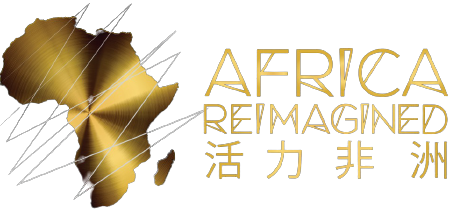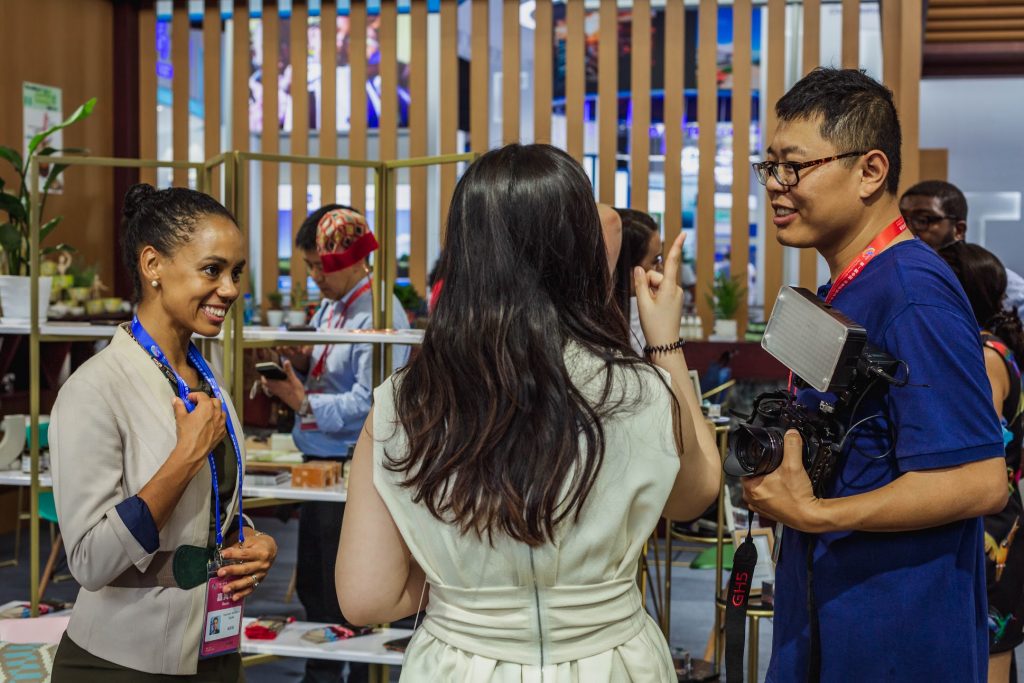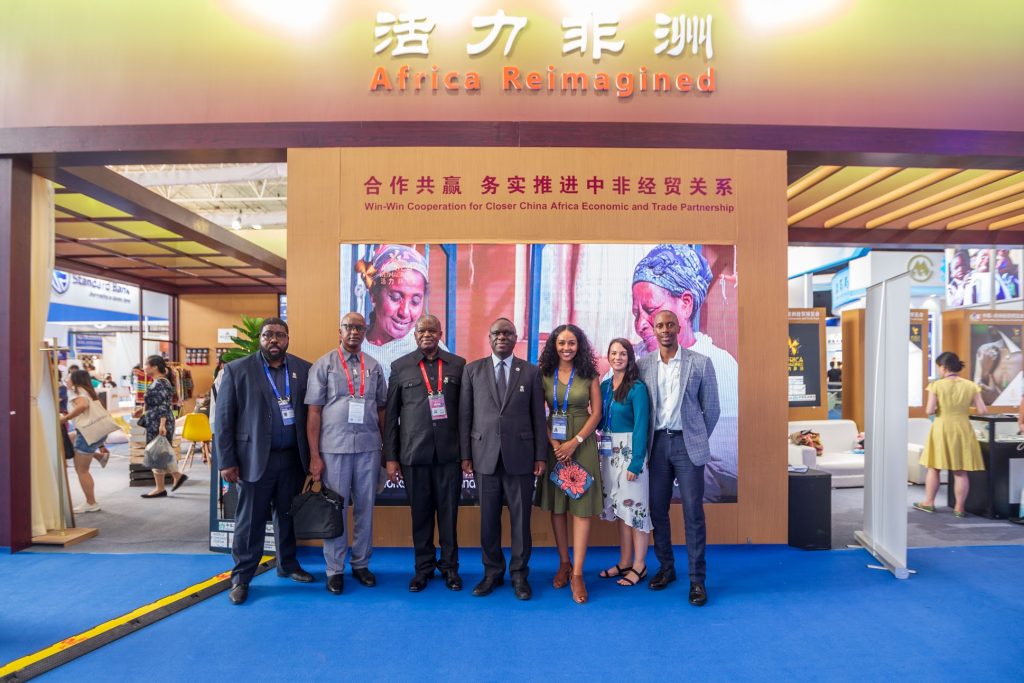
Helping African Brands Enter the Chinese Market
Quick links
Menu
Menu
At Africa Reimagined we firmly believe that ‘aid’ or development cooperation is not the best answer to sustainable development in Africa. Solving economic and social problems in poor and middle-income countries requires structural change – in trade, investment, and people. We believe in a holistic approach – looking at all areas of development, beyond aid, and what role ALL actors can play – not just governments, and not just actors in one part of the world.
China is a key player in this and since 2008 has become the African continent’s largest trade partner. And for the 53 African countries with diplomatic relations with China, there has been heavy investment in infrastructure and development, and undeniably this has contributed to Africa’s economic development and progress towards some of the Sustainable Development Goals (SDGs). However, there has been a stark imbalance in the trade composition between China and 40 of these African countries. This stark trade imbalance severely affects the capacity of African countries to create jobs, earn foreign exchange, and develop sustainably to cut poverty – calling for building a more sustainable Africa-China relationship that alleviates the acute trade imbalance.
This is why at Africa Reimagined, we designed and executed our pilot Bespoke China Market Entry Programme, which brought 7 exciting, innovative and sustainable African brands to China. From jewellery to fashion, and to tea and skincare, we brought together these SMEs to disrupt the stereotype of African products and help their ambitious CEOs understand how to enter the vibrant and ever-growing Chinese consumer market.
Over 10 days across 3 cities (Beijing, Changsha, and Dalian), we introduced these brands to the Chinese market, beginning with the China-Africa Economic Trade Expo. Here, our brands had the chance to advertise and sell their products directly to consumers, as well as interact with other influential figures and businesses in their field.
At the expo, we found that Chinese consumers DO have an appetite for luxury African products.Over the duration of the expo, more than 90% of the products were sold out, and multiple inquiries were made about further distribution channels. Many customers bought multiple items and had a genuine interest in understanding more about the history of the product and the brand. Others put orders in for more product. Our experience demonstrated that high-end, luxury African products do have a place in the competitive Chinese consumer market and CAN take a slice of the estimated $5.6 trillion projected sales in China (2019) – around $100BN more than the United States.

Despite the clear potential we found for African brands in China, we also learned that, among others, African businesses typically face three major challenges in China:
Whilst designing and implementing the programme, we were in touch with over 50 African brands in multiple sectors. Through this it became clear that most African businesses are not aware of the vast opportunities the Chinese market can provide for growing their businesses. Most African SME’s are looking to the USA, where consumption is rising by 2% year on year, yet in China it’s increasing 16% per year.
We found that these businesses urgently need strategic support to navigate and enter the complex Chinese market, as currently no online or offline platforms exist that promote high-end luxury African goods and products in China. Moreover, it is clear that many African businesses are significantly unprepared and resource-poor to enter the Chinese market. If in China, most are operating informally or in joint ventures that provide for poor intellectual property protection. Many do not understand Chinese market trends (let alone language) and opportunities nor the official requirements. The Chinese market is vast, opaque and regulated heavily, thus many foreign companies rely on trade facilitation organizations to navigate doing business in China.
There is a severe lack of awareness in China about Africa. Ask any ordinary Chinese person which African countries they have heard about, most will reply Kenya – for animals; Nigeria – for oil and its large population; South Africa – for extractives and mining; and Ethiopia – as a new manufacturing destination for apparel. This needs to change and during our 10-day programme we worked alongside many media outlets from CGTN to The Global Times to shift the narrative and educate the public about the innovative side of Africa.
Africa Reimagined tackles each of these three challenges, and many more. Our pilot program at the China-Africa Economic Trade Expo demonstrates the bright future for African high-end brands in Chinese markets. We’re here to turn that future into a reality.
Stay tuned for more blog posts about other parts of our pilot program! These brands were all impressed by the response in China. Some are looking at concrete next steps to enter China, including brand trademarking, e-commerce platforms, distribution partnerships – and some are already shifting their marketing budgets towards China.
As for Africa Reimagined, we are preparing to launch our services for interested African brands. Check out the rest of our website to see what we can help you accomplish. Contact us if you’re interested — we’d love to get in touch!


Helping African Brands Enter the Chinese Market
© Copyright 2024 All rights reserved
Trevor Lwere is a Research and Coordination analyst at Development Reimagined with a background in Economics and Global Affairs. His interests include geopolitics, geoeconomics and economic development. He holds a Masters’ degree in Global Affairs fro Tsinghua University and a BA Economics from the University of Notre Dame.
Sena Voncujovi is a research and policy analyst at Development Reimagined. Voncujovi specializes in global health issues, Japan-Africa relations, and China-Africa relations. He served as the Editor-in-chief of Peking University’s Africa Think Tank (PATT) during his master’s in International Relations & Politics as a Yenching Scholar. Voncujovi previously advised the Ghanaian government for the 2019 TICAD 7 Conference held in Yokohama. He is the co-founder of Jaspora, Tokyo’s largest community of African diasporan diplomats, changemakers, professionals, students, and business people.
Yixin is a Junior Research Analyst and her focus areas is on public-private partnership and entrepreneurship. She has over three years of working experience in both private and public sectors in Ethiopia. She was the China Liaison Officer for project ‘Partnership for Investment and Growth in Africa’ at International Trade Centre, where she accumulated rich experience in investment and trade promotion.
Ivory is a Kenyan lawyer with experience in policy research and analysis. She also supports the communications team through liaising with African brands, creating graphic content and other external outputs at AR. Ivory speaks English, Swahili and French
Jinyu is a dual-degree Master’s student at Sciences Po & Peking University. At Africa Reimagined, Jinyu produces research to foster better mutual understanding between African clients and Chinese consumers.
Yike Fu is a Policy Analyst and has been responsible for leading numerous areas of work, including on debt analysis in Africa and beyond, and China-Africa trade and investment logistics and analysis. She is the co-author of “African Debt Guide”, in which she challenged the narrative that Africa is in the midst of a new debt crisis by analysing data back to the 1970s and adopting new metrics to present the real story behind the data. She also developed a benchmark to compare the financial distribution of development partners such as the UK, US, Japan, France and China in Africa. Prior to her role at DR she worked at the International Finance Corporation and African Union Representational Mission to the US. She holds a Masters in International Affairs from George Washington University.
Rosie is the Project Manager of Africa Reimagined (AR) at Development Reimagined (DR) where she supports high-end African brands with entering the Chinese market by operating services such as trademark protection, Chinese market research, Chinese partnership building, and Africa to China logistical support and import/export services. Rosie has worked with DR for over two years now with proven success in helping high-end African brands navigate the Chinese market. She is extremely passionate about her work because more African brands selling in the Chinese marketplace means African countries can export MORE value-added goods, create MORE jobs and foster MORE innovation in African countries.
Leah Lynch is Deputy Director of Development Reimagined (DR), and head of the China office. Leah has over 10 years of experience in development and has lived in China for over 8 years. Leah has also travelled extensively around Asia and Africa for research. Leah supports the strategic direction of the team across China, with a mission to deliver high quality research on sustainable development and poverty reduction. Leah is also Chair of the Sustainability Forum at the British Chamber of Commerce in China, providing direction on sustainability initiatives for British and Chinese business. Leah has also consulted on various evaluations on UK aid (ICAI) and is a specialist on development cooperation from the UK and China. Leah has also consulted on various UN projects, including providing support to the UN China team during the COVID-19 Pandemic. Prior to DR, Leah was at the United Nations Development Programme (UNDP) China, supporting the UN’s portfolio on communication strategies, China’s South- South Cooperation and the Belt and Road Initiative (BRI). Before UNDP, Leah lived and worked in Kenya developing sustainable water policies for the Kenyan government.
Hannah Ryder is the Founder & CEO of Development Reimagined. A former diplomat and economist with 20 years of experience, named one of 100 most influential Africans in 2021, she is also Senior Associate for the Africa Program of the Center for Strategic International Studies (CSIS), sits on the Board of the Environmental Defence Fund, and is a member of UAE’s International Advisory Council on the New Economy. Prior to her role at DR, Ms Ryder led the United Nations Development Programme (UNDP)’s work with China to help it scale up and improve its cooperation with other developing countries, including in Africa. She has also played various advisory roles for the UN and OECD and co-authored the seminal Stern Review of the Economics of Climate Change in 2006.
We support our clients throughout the whole onboarding and sales process on Chinese e-commerce platforms including registration, international and China-mainland logistics, storage, payment transfers, and marketing & advertising strategies.
In addition to supporting our clients with onboarding onto e-commerce platforms or developing their own WeChat stores, we also have our own Africa Reimagined e-commerce stores for our clients to sell on.
Kiliselect on WeChat Stores: Africa Reimagined launched on Kiliselect, which is a foremost e-commerce store for premium African products in China and the Chinese branch of East Africa’s Kilimall. It houses brands from a range of sectors including food and beverage, skincare and homeware. Kiliselect is found on WeChat Stores, which gives the store access to 1.2 billion active WeChat users across China.
JD-Worldwide: Next year, Africa Reimagined will open the first ever flagship, pan-Africa e-commerce store for premium African brands on JD-Worldwide, the cross-border e-commerce platform of China’s largest retailer, JD.com. It will sell exclusively luxury African brands from a range of sectors including, fashion and jewellery, food and beverage, skincare. and homeware.